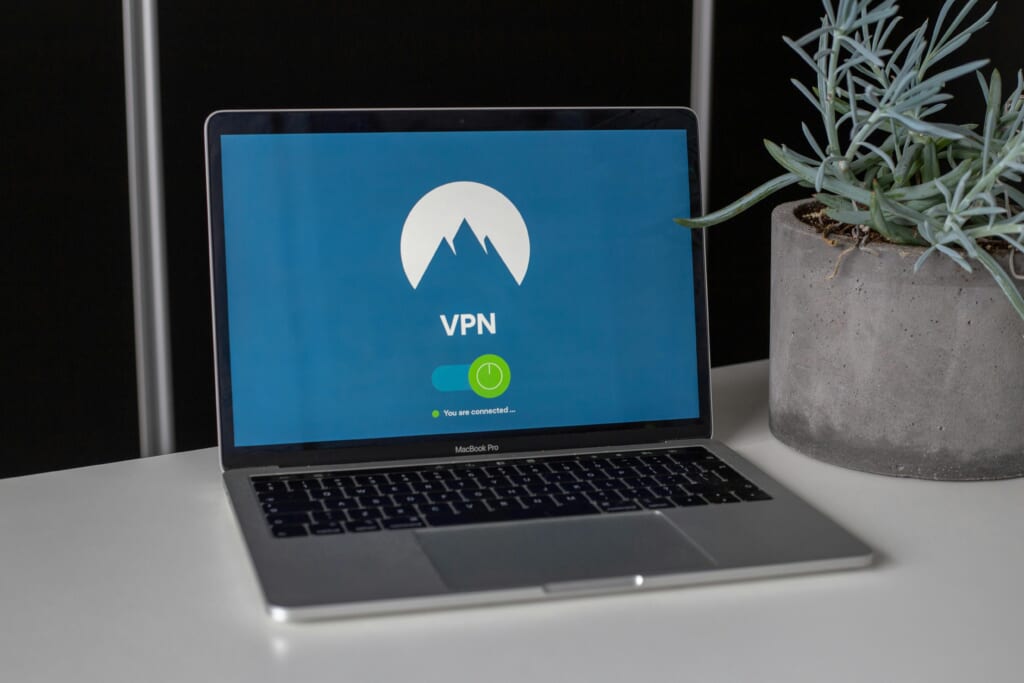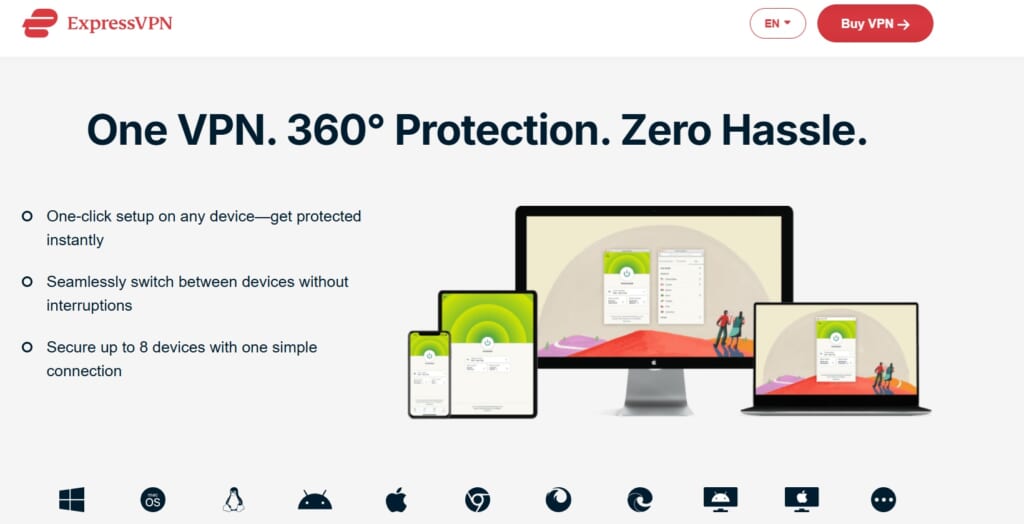Expat’s Guide to Using VPN
A Virtual Private Network (VPN) is a service that encrypts your internet connection to ensure your online activities remain private and secure. By routing your data through an encrypted tunnel to a remote server, VPNs mask your IP address, making it appear as though you’re browsing from a different location. This technology beefs up privacy and allows access to content that might be restricted in your region or country. Today, we’re walking you through VPNs, their features, drawbacks, and much more.
 IMAGE from Pexel
IMAGE from Pexel
Uses of VPNs
Securing Public Wi-Fi Connections
Public Wi-Fi networks, such as those found in cafes, airports, and hotels, are convenient but often have weak security measures, which make them susceptible to eavesdropping and cyberattacks. When connected to these unsecured networks, users’ personal information, including login credentials, financial data, and private communications, can be intercepted by malicious actors. Utilizing a VPN in such cases encrypts the user’s internet traffic that creatie a secure tunnel between their device and the VPN server. This encryption ensures that even if data is intercepted, it remains unintelligible to unauthorized parties, thereby safeguarding sensitive information.
Aside from protecting personal data, using a VPN on public Wi-Fi also helps prevent man-in-the-middle attacks, where an attacker secretly relays and possibly alters the communication between two parties. By securing the connection, VPNs mitigate the risks associated with these types of cyber threats, providing peace of mind to users who need to access confidential information or perform transactions over public networks.
Accessing Geo-Restricted Content
Virtual Private Networks (VPNs) empower users to bypass regional restrictions by masking their IP addresses, effectively making it appear as though they are accessing the internet from a different location. This capability is particularly beneficial for individuals looking to access content that is otherwise unavailable in their region due to licensing agreements or government-imposed restrictions. For example, streaming platforms such as Netflix and Disney+ often offer different libraries of shows and movies depending on the user’s location. By connecting to a VPN server in a country where the desired content is accessible, users can enjoy a broader range of entertainment options.
 IMAGE from Pexel
IMAGE from Pexel
However, it’s important to note that while VPNs can facilitate access to geo-restricted content, this practice may violate the terms of service of some platforms. Streaming services invest heavily in securing content licenses specific to certain regions, and circumventing these restrictions can lead to contractual complications. Moreover, some platforms have implemented advanced VPN detection mechanisms to enforce their regional policies, potentially resulting in service interruptions for VPN users. Therefore, individuals should exercise caution and consider the legal and ethical implications before using a VPN for this purpose.
Maintaining Privacy for Activists and Journalists
In regions with restrictive internet policies and pervasive surveillance, VPNs serve as vital tools for activists and journalists. These individuals often operate in environments where freedom of expression is curtailed, and accessing or disseminating information can be fraught with danger. A VPN allows them to communicate securely by encrypting their data and masking their IP addresses, thereby reducing the risk of being monitored or traced by authorities. This secure communication channel is crucial for protecting their sources, maintaining the confidentiality of their work, and ensuring their personal safety.
Moreover, VPNs enable access to uncensored information by allowing users to bypass government-imposed internet restrictions. This unrestricted access is essential for journalists seeking to report accurately on global events and for activists striving to promote social and political change. By circumventing censorship, VPNs empower these individuals to stay informed and connected with the international community, fostering a more open and informed society. However, it’s important to acknowledge that the use of VPNs in certain countries may be illegal or subject to governmental scrutiny, necessitating a careful assessment of the risks involved.
Advantages of Using a VPN
Improved Security
 IMAGE from Pexel
IMAGE from Pexel
One of the primary advantages of using a VPN is the enhancement of online security. VPNs encrypt your internet traffic, making it significantly more difficult for cybercriminals to intercept and exploit your data. This encryption is particularly beneficial when transmitting sensitive information, such as personal identification details, financial transactions, or confidential business communications. By securing your data, VPNs help protect against various cyber threats, including identity theft, data breaches, and unauthorized access.
Additionally, VPNs can prevent Internet Service Providers (ISPs) from monitoring your online activities. In some cases, ISPs may collect and sell user data to third parties or throttle your internet speed based on your usage patterns. By encrypting your traffic, a VPN ensures that your browsing habits remain private, thereby preventing potential misuse of your data and maintaining a consistent internet experience.
Anonymity
Aside from security, VPNs offer anonymity by masking your IP address and location. This concealment makes it more challenging for websites, advertisers, and even governments to track your online behavior. For individuals concerned about privacy, this means they can browse the internet without leaving a clear digital footprint, thereby reducing the likelihood of targeted advertising or surveillance.
However, it’s important to note that while VPNs enhance anonymity, they do not render users completely untraceable. Activities conducted online can still be subject to tracking through other means, such as browser fingerprinting or account-based monitoring. Therefore, while VPNs significantly bolster privacy, they should be used in conjunction with other privacy-preserving practices for comprehensive protection.
Remote Access for Businesses
For businesses, VPNs are invaluable tools that facilitate secure remote access to internal networks. This capability is particularly crucial in the context of remote work, where employees need to access company resources from various locations. By implementing a VPN, organizations can ensure that their staff connects to the corporate network through encrypted channels, thereby protecting sensitive data from potential interception.
Disadvantages of Using a VPN
VPN Services Providers
NordVPN
NordVPN is a top choice for users who prioritize security and privacy. It is known for its double VPN encryption, which routes internet traffic through two servers instead of one, adding an extra layer of protection. This feature is particularly useful for users in countries with strict internet regulations or those handling highly sensitive data. Additionally, NordVPN employs AES-256 encryption, a military-grade standard that ensures data remains protected from cyber threats.
Another standout feature of NordVPN is its massive server network, with over 6,000 servers across 60+ countries. This allows users to find a fast and stable connection while bypassing geo-restrictions on websites and streaming services. Moreover, it includes a built-in ad blocker and malware protection, reducing the risk of encountering malicious websites. However, while it boasts strong security, its interface might be slightly more complex compared to other VPNs, making it better suited for users comfortable with advanced settings.
ExpressVPN
 SCREENSHOT from ExpressVPN’s website
SCREENSHOT from ExpressVPN’s website
ExpressVPN is widely regarded for its high-speed connections, making it ideal for streaming, gaming, and other bandwidth-intensive activities. Unlike NordVPN, which prioritizes security with multi-layer encryption, ExpressVPN focuses on performance and ease of use, ensuring a smooth experience for both beginners and experienced users. It utilizes the Lightway protocol, an in-house development that provides faster speeds and improved efficiency compared to traditional VPN protocols like OpenVPN.
ExpressVPN also boasts a simple and intuitive interface, allowing users to connect with a single click. While it has fewer servers than NordVPN (around 3,000+ servers in 94 countries), it makes up for this with optimized locations that provide consistent performance and reliable access to geo-restricted content, including platforms like Netflix, Hulu, and BBC iPlayer. One potential drawback is its higher price compared to competitors, but for users who prioritize speed and accessibility, it remains a top-tier choice.
CyberGhost
CyberGhost stands out by offering dedicated servers for streaming and torrenting, making it a preferred option for users with specific entertainment needs. Unlike NordVPN and ExpressVPN, which boast general-purpose security and speed features, CyberGhost provides pre-configured servers tailored to bypass streaming service restrictions. For example, users can choose a server optimized for Netflix US, Hulu, or Amazon Prime, ensuring smooth playback and minimal buffering.
Additionally, CyberGhost has a strict no-logs policy and uses AES-256 encryption, similar to NordVPN, ensuring strong security and privacy. It also has one of the largest server networks, with over 9,000 servers in 90+ countries, providing users with multiple connection options. However, its speeds are generally slower than ExpressVPN, and while it is user-friendly, its advanced customization options are not as extensive as those found in NordVPN. Despite these minor drawbacks, CyberGhost remains a great choice for users who primarily need a VPN for entertainment and downloading content safely.
VPNs are valuable tools for enhancing online privacy, accessing restricted content, and securing data over public networks. However, it’s essential to be aware of their limitations, such as potential speed reductions and varying levels of security across providers. Selecting a reputable VPN service that aligns with your specific needs is crucial to maximizing the benefits while minimizing potential drawbacks.














